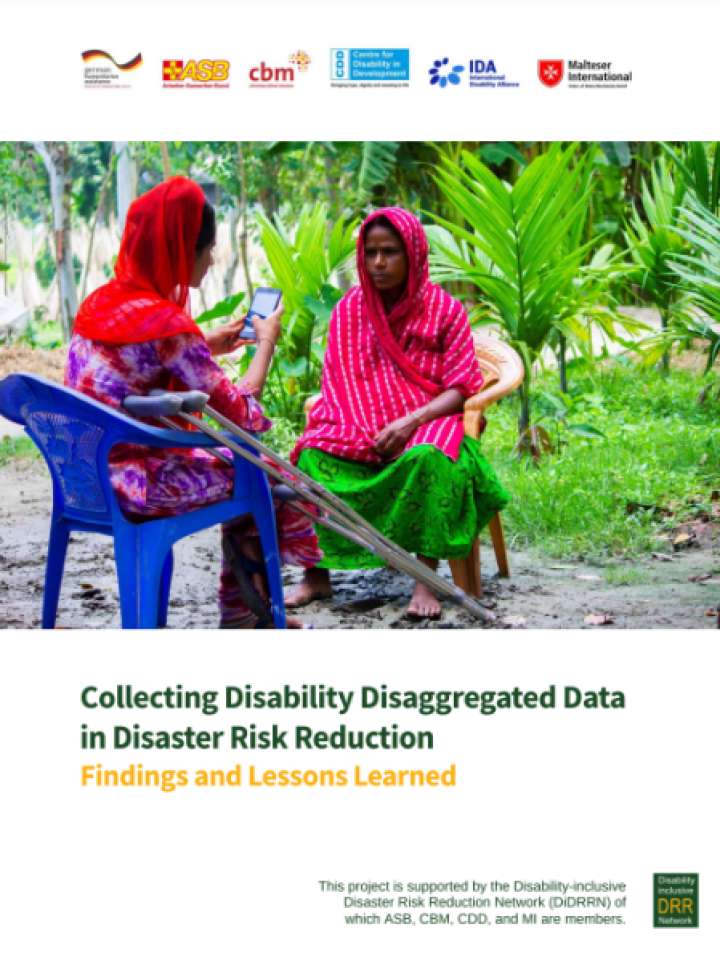Collecting disability disaggregated data in disaster risk reduction: Findings and lessons learned
The recent years show a global effort to better integrate disability inclusion into government strategies, disaster risk reduction (DRR) plans, and humanitarian response initiatives. However, a significant challenge persists due to a lack of practical knowledge among DRR and humanitarian actors on effectively mainstreaming disability. Another crucial element is the absence of disaggregated data, impeding a comprehensive understanding of disability prevalence before, during and after crises. Disaggregated data is essential for understanding how individuals with disabilities experience crises and monitoring their access to humanitarian assistance.
This report syntheses findings from the collection and analysis of disability disaggregated collected through the Washington Group Short Set of Questions (WG-SS) in seven different countries (Bangladesh, Indonesia, Colombia, Myanmar, Niger, Uganda, and Nicaragua). The analysis shows significant variations in the prevalence of persons with disabilities with the lowest prevalence of 4.2% in Niger, and the highest, a notable 29%, in Myanmar. These discrepancies underscore the need for nuanced, context-specific approaches to disability inclusion in DRR initiatives. Preselection processes in Uganda, Colombia, Nicaragua, and Indonesia generate exceptionally high prevalence rates for these contexts and impede to compare this data with the prevalences from the other countries.
Explore further
